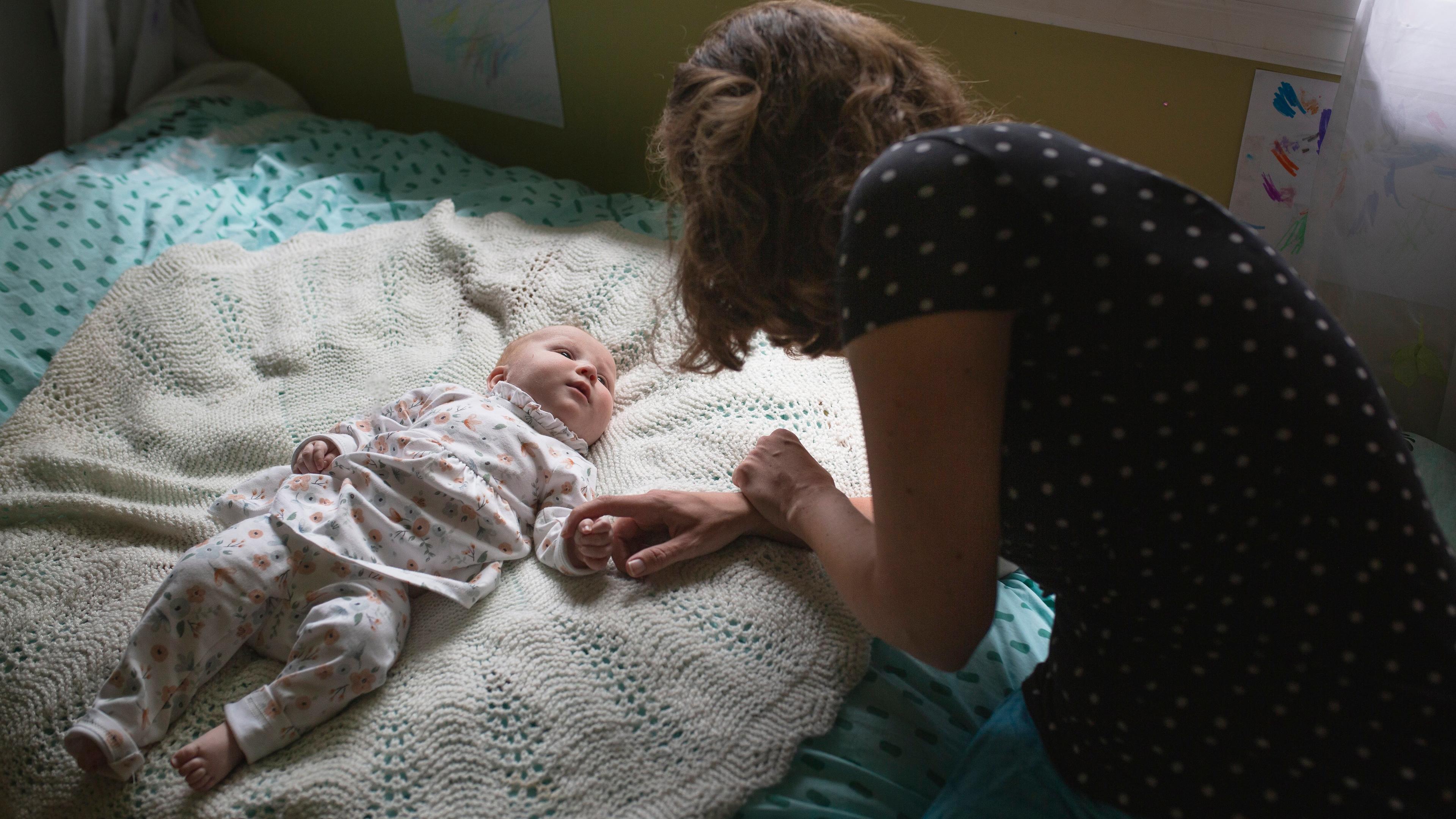Desires make each of us come alive, but we rarely have the time and space to consider them properly. Psychotherapy offers an opportunity to do that. Some of my therapy clients have come to sessions with clarity about a particular desire they have; others haven’t thought much about what they really want. In either case, there is often a tension between one’s deep desires and one’s expectations or responsibilities. Someone might secretly ache for something that collides with their sense of acceptable behaviour. Innermost desires can clash with beliefs about what one should and shouldn’t want. Feeling and expressing the force of desire can be exciting, but also terrifying.
After years of speaking with clients about these concerns, I find that I’ve learned more about desires from them than I have from theories and books. Here are a few of the lessons that have emerged.
1. Where you lack gratitude, you might find a hidden desire
There’s a lot of pressure to be grateful these days. Sometimes, even if a person has reason to feel genuine gratitude, and wants to, their attempts flop. It can be valuable in these instances to consider what might lie behind the difficulty.
One of my clients, in her early 40s, began therapy when her baby was a year old. (I have altered details of my clients’ stories here to protect their confidentiality.) She had always longed for a child and she’d gone through several rounds of IVF. So why, she wondered, was she not entirely fulfilled now that she had become a mother? She talked a lot about gratitude and positivity, and seemed to be cheering herself on in a way that wasn’t convincing. She felt as if she should simply be satisfied with motherhood. But she wanted space to explore more.
What quickly emerged was her feeling of deprivation. She felt a loss of professional engagement and stimulation. She wanted to have strong connections with other adults, and to stretch her mind. My client had always imagined that she would gladly give up her work and socialising for the first few years of her child’s life; she was surprised by her disappointment. Entering motherhood had changed her life, and it wasn’t enough for her.
Desperation can narrow and magnify the focus of desire
It can be easy to forget, when you want something strongly, that you will have other desires in the future that you do not yet feel. You might mortgage yourself emotionally in the process of satisfying one desire, and there’s a kind of resentment debt that can build over time when you’ve ignored yourself in important ways.
Desperation can narrow and magnify the focus of desire. This woman had felt so preoccupied by her desperate desire to have a baby, she had believed that having that baby was all that mattered to her. She’d expected to feel endless gratitude for getting what she wanted, but ignoring her other desires felt like a form of self-betrayal.
It was only when she felt the sharp pain of ingratitude that she opened herself to the realisation that she wanted more out of life. In therapy, she worked through the guilt and shame she felt for desiring more, emotionally, than the relationship she had with her baby offered on its own. She became curious about her longings. She found that her view of motherhood and other components of her identity could be both/and, rather than either/or, and started to make space for connection and recognition in other relationships.
Another client of mine, in his late 20s, told me that, despite having what seemed to be a successful life, he felt ‘trapped’ – by the expectations of others, by societal norms. ‘I’m so lucky, but for all the gratitude I try to feel, it’s not working for me,’ he said. Consumption and hedonism, and his professional achievements, were supposed to be gratifying, but they were ultimately not fulfilling. He did things he thought he should do. What he did for work, where he went on holiday and other choices seemed to come from a place that was largely separate from his innermost wants. He was living a life of quiet desperation, bossed around by what the psychoanalyst Karen Horney called ‘the tyranny of the should’.
‘I don’t know how to think for myself,’ he said. I challenged him in his resignation. He was here, in therapy, beginning to think for himself, feel for himself. His thought that It’s not working for me was the turning point for him. He repeated the words, perhaps to reiterate them to me, but also to hear his own thoughts.
He felt he’d had several superficial connections but never had a truly loving romantic relationship, which is what he really wanted. The realisation of a desire to love and be loved can make one feel vulnerable; there is risk and possible loss in the pursuit of love. ‘I feel unsettled by wanting love,’ he said. But he had the courage to contemplate what it would mean to let himself pursue it. We examined his vision of a loving relationship; his fantasy was unlikely to match reality, and disappointment was a possibility. Still, he told me after several sessions, ‘of course, an actual relationship will be different to what I imagine, but I’m glad I’m willing to find out. I want something real.’
He had spent years trying to feel grateful for a counterfeit life. But when people have lost touch with their desires, they protest. This man’s refusal to feel gratitude for the ‘shoulds’ was his life force coming through.
2. Risk can prevent you from recognising what you want
For so many people, a strong desire can feel overwhelming because of the exposure to risk that comes with it. The threat of rejection, disappointment or failure can be so daunting that people turn away from what they truly want.
After a client in her 30s became interested in applying for a promotion, she tried to persuade herself that she didn’t really want the bigger role. She listed various reasons why she wasn’t qualified and shouldn’t have the ego to dare to ask for more. In therapy, she imagined applying for the role and getting turned down. Would she survive the rejection? She wasn’t sure. As she contemplated her next steps, the deadline to apply for the role passed, and she missed her chance. She was disappointed that she had blocked herself from applying.
My client did not regret facing, and opening up about, her true desire
Over the next few months, she opened herself to other possibilities. While she didn’t get the first job she applied for, she did get the next one. Wanting more in her career exposed her to the risk of failure and disappointment, but trying to tell herself that she should not want more had kept her stuck. Losses are inevitable in life, and as she faced this in our therapy sessions, she began to free herself from the dread of losing.
The risk of vulnerability seemed to block the path of another client, who revealed to me that she was sexually attracted to her female friend. She attempted to persuade herself that she didn’t want a sexual relationship with a woman. In therapy, she told me that she valued dating men, even though she wasn’t sexually attracted to them. She tried to find problems with her female friend, searching for irritating qualities and proof of a flawed character so that she could discount the possibility of a romantic connection. She eventually picked a fight with the friend and abruptly ghosted her.
Soon after, she felt sexually attracted to another woman. This time, however, she expressed her feelings – and was rejected. Perhaps surprisingly, my client did not regret facing, and opening up about, her true desire. ‘I was scared to find out that I really want a relationship with a woman,’ she said. ‘I knew I’d have to deal with my feelings, and maybe do something big. I was clammy and nervous, saying it aloud.’ To desire something or someone, and to make a move, exposes you. ‘I’m glad I’ve expressed it, though. I’ve been true to myself. I’ve done what I can, and I’ve tried and failed. The loss of not trying would be worse.’
3. Life can be fulfilling even if your desires are never totally fulfilled
At the beginning of my career as a psychotherapist, a woman who was turning 70 had come in for therapy as her gift to herself. With a wistful look, she told me she’d never had an orgasm with her husband. ‘We’ve been together for 45 years,’ she said. ‘It’s not for lack of trying, but he has no idea what I want sexually, and I’m not going to start telling him my fantasies. He thinks he’s satisfied me all these years. If anything, the familiarity of life together has made us more formal with each other and less intimate. I can’t expect him to know when I’ve faked it so well most of my life.’
What a gift she had given herself, telling the truth. We keep secrets even from ourselves, and it’s liberating to confront the seemingly unspeakable parts of our lives and to find words to describe them.
It was a sense of immense release, facing her secret demands for gratification
‘Of course, I’ve known I’ve faked it all this time. But I never asked myself why,’ this woman said. I asked. She had initially wanted to please her husband, to be desired by him, and pretending felt necessary. Now, she could at least tell me about this aspect of her life; she didn’t have to fake anything in therapy.
In our work together, she came to accept the patchwork sources of meaning and fulfilment in her life. Conversations with beloved friends, cooking for her grandchildren, reading anything by Tennessee Williams, going out for dinner with her husband and laughing at his witty remarks, looking at paintings by Cézanne – these were some of the charms she described. ‘These experiences and rituals bring me close to my own aliveness,’ she said. She was satisfied by her marriage in many ways, albeit not sexually.
She still needed to acknowledge the let-downs, and found it meaningful to articulate her disappointments clearly. It was a sense of immense release, facing her secret demands for gratification, and her frustrations. At one point, she said: ‘I’ve only just realised that my life is full of richness, even with the disappointments, and without a climax, in every sense. I find that quite marvellous.’
When I began writing the book Tell Me What You Want (2023) about desires, I once again encountered the challenges inherent in searching for fulfilment. A person can never have everything they want, because if they do get what they think they want, they often change their minds or decide that they want more. And there’s loss. Yet even when fulfilment is elusive, desire is exhilarating and enlivening in itself; it sets us in motion. None of us will ever have all that we want, but when we’re bold and willing to have new experiences, to risk disappointment, to be truthful to ourselves and to consider varied sources of satisfaction, something marvellous is nearly always possible.








